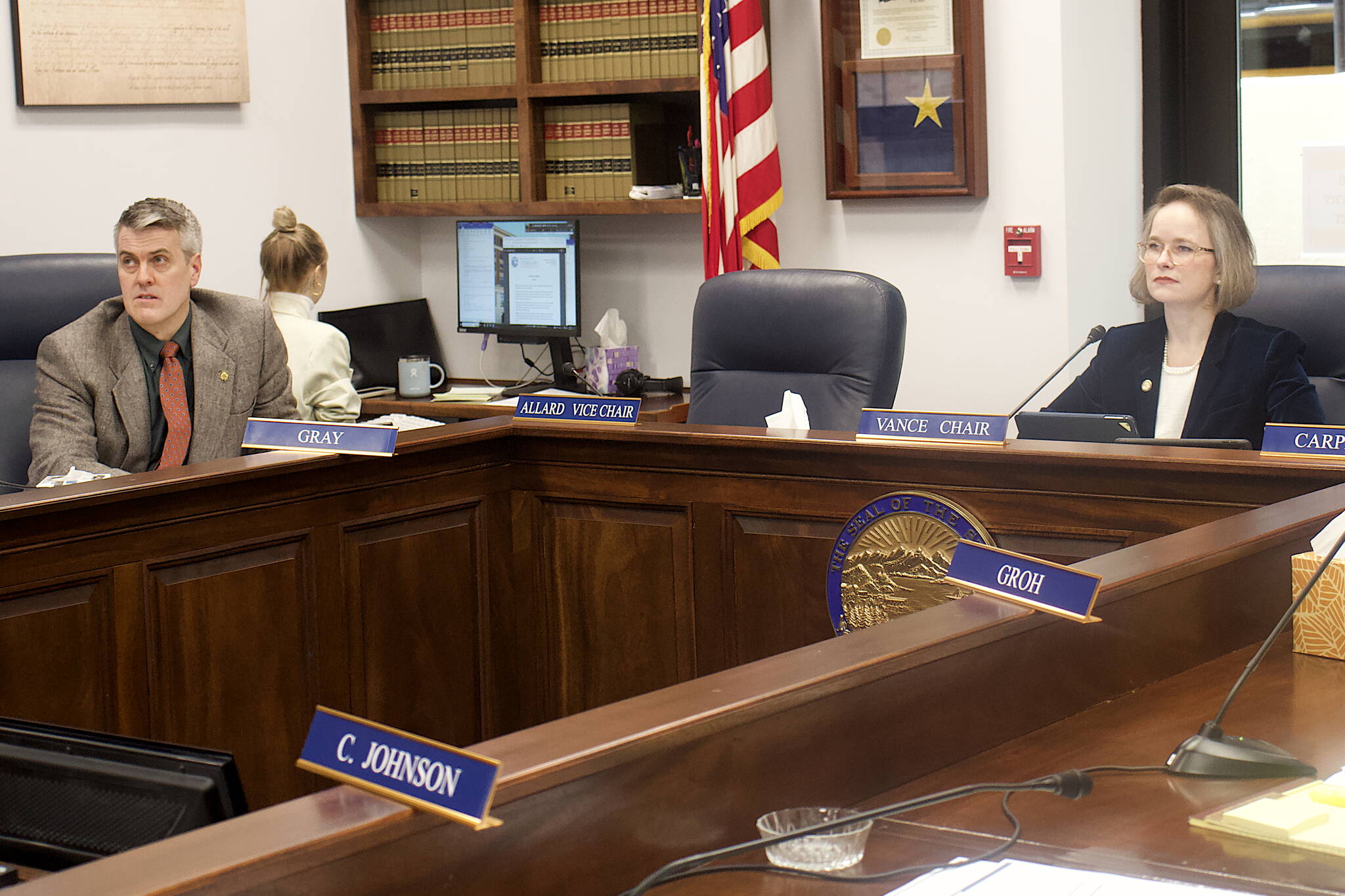Allowing religious and nonprofit organizations to discriminate in their employment practices is among a series of changes being sought by the state’s human rights commission, which got a bill introduced and immediately heard by a committee afterward on Wednesday.
The Alaska State Commission for Human Rights is also seeking to change its name to Alaska State Commission for Civil Rights, which the agency’s leader says would keep it from dealing with complaints about matters such as criminal due process, privacy, freedom of speech, education and health. Furthermore, the bill would give the governor the right to remove board members “for cause.”
The commission attracted national attention last month when an investigative report revealed equal protection language for LGBTQ+ individuals was quietly removed on the the advice of Attorney General Treg Taylor, after it was requested by a Christian group critical of Gov. Mike Dunleavy during his reelection campaign for not being conservative enough.
House Bill 181 was introduced a day after legislation restoring those protections was referred to the judiciary committee, following a contentious hearing and vote by the Community and Regional Affairs Committee.
An initial hearing on HB 181 early Wednesday afternoon by the House Judiciary Committee, which was scheduled days before the bill was introduced about an hour before the meeting, wasn’t as confrontational. But Robert Corbisier, the commission’s executive director, faced a series of questions from Rep. Andrew Gray, an Anchorage Democrat who is gay, about who religious and nonprofits could fire if, for instance, the employee was of a different faith or refused to participate in a daily prayer.
“I worked as professional soloist at churches and synagogues,” Gray said. “No one asked me what my religion was, so I did all of them. But if any of them had said ‘you’re not Jewish, Baptist (or) Episcopalian…would be a case because I was singing in the service that they would have the right to tell me that I could no longer do that job?”
Corbisier said recent federal court decisions largely exempt such organizations from discrimination claims, so they could indeed fire Gray.
“I think they’ve got a strong argument singing is a part of the ecclesiastical, spiritual or religious aspect of that job,” Corbisier said.
The same provision would apply to firing a school janitor who refused to participate in a morning prayer or refusing to hire a person with a speech impediment, he said, responding to other hypothetical situations.
“They could refuse to hire the employee for any reason,” he said.
One of four resolutions passed by the commission that were the basis for HB 181 asserts state regulations already allow religious educational and charitable organizations to discriminate in hiring. It also declares the state’s Human Rights Law “does not currently take into account that as of 2018 there were 5,765 non-profits in the State of Alaska with 44,000 employees generating $3.89 billion in total annual income, (and) the majority of these employees are non-jurisdictional under the current law and are not afforded the same protections as other Alaskans.”
“The Alaska State Commission for Human Rights cannot eliminate and prevent discrimination to all of Alaska’s citizens under current law,” the resolution adds.
The commission is seeking the various changes defined in the four resolutions because its name and many of its defined responsibilities are outdated, Corbisier told the committee.
“People ask us ‘can’t you do something about environmental costs?’ No, that is beyond the scope of commission,” he said. Similarly, members have been asked about homelessness in Anchorage and “I have to say homelessness is not a protected class.”
Renaming the commission to “civil rights” would hopefully clarify to residents the scope of the agency’s authority and avoid confusion with other entities, such an incident last year where some people mistake the commission for the Alaska Humanities Forum, Corbisier said.
Another change sought that could significantly affect the commission’s makeup is giving the governor the right to remove members for reasons such as incompetence, misconduct, or public statements or actions “that undermine the commission’s work.” Similar authority generated enormous controversy earlier this year when Dunleavy removed three of the five members of the state’s salary commission — and replaced all five when the other members departed at roughly the same time — who the immediately voted to give state legislators a huge pay raise the previous commission rejected.
Corbisier said while there’s a “need to remain apolitical” and “in theory no governor can appoint the entirety of the commission,” there’s also no provision currently to remove a member. A commissioner targeted for removal under the bill would have 10 days to appeal the decision.
HB 181 also changes requirements for when the commission issues reports. Annual reports about civil rights problems during the previous year would be due Nov. 15 and available electronically to the public, while reports about equal employment opportunities that are published every three years would be due within 90 days of the Legislature convening for its annual session.
The bill’s next hearing by the House Judiciary Committee is scheduled at 1 p.m. Friday.
“It sounds like we have further revision work to do,” said Rep. Sarah Vance, a Homer Republican who chairs the committee, after concerns by Gray and other committee members were voiced about several aspects of the bill.
• Contact reporter Mark Sabbatini at mark.sabbatini@juneauempire.com.

